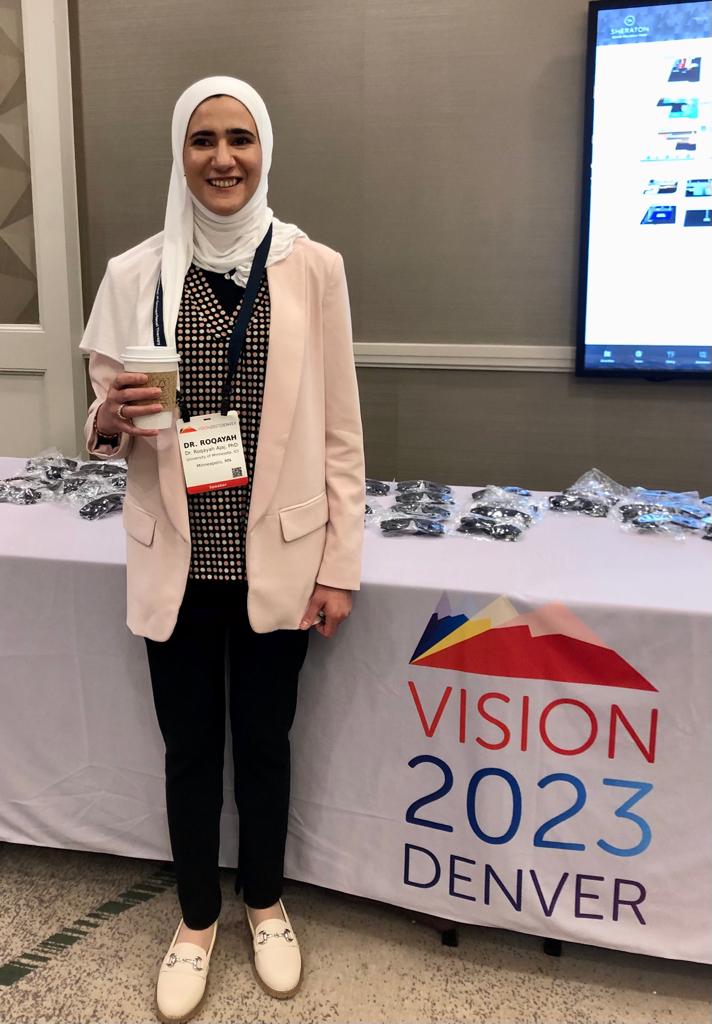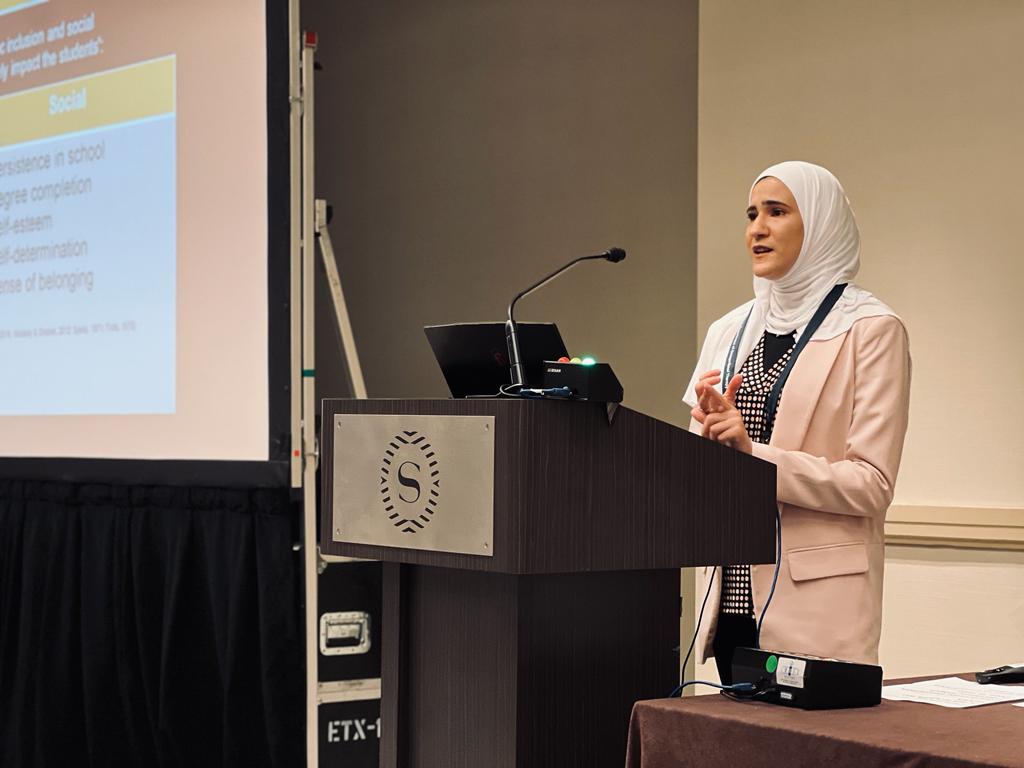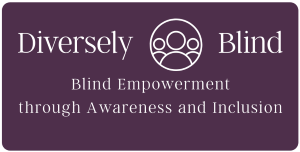In July 2023, I attended the VISION 2023 conference, which was an interdisciplinary conference focused on vision where I presented my research alongside other passionate professionals. The conference had 500 attendees from 30 countries and offered over 100 presentations. These presentations included biomedical, social, and psychological aspects of vision loss. My brain was both overwhelmed and excited because finally, I am attending a conference that touches my heart and what I was hoping and looking for throughout my life. Professionals and researchers were investigating the effects of vision loss from different angles and finding creative ways to empower the blind and visually impaired (BVI) community, including sports, education, mental health, eye health, families of kids who are blind or visually impaired, genetic testing, selecting the right glasses, having co-occurring disabilities, dyslexia, reading, driving, and raising awareness.

Below are a few examples that stood out to me followed by my contribution.
Therapeutic Horseback Riding
Nothing is impossible through a strengths-based approach. One team was teaching children who are BVI to ride a horse to increase their confidence and self-determination. I was amazed that this group did not view blindness as a weakness, but as a strength. They worked with each child at their own pace and gently pushed them to make quicker decisions. There are a number of positive benefits for children who engage in therapeutic horseback riding including physical health, mental health, time management, organizational skills, decision-making etc.
Empathetic Training for Optometrists
It was also really inspiring to meet an optometrist named Dr. Shuldiner, who provides training in his home for other eye doctors on how to empathize with patients who are BVI and provide them with the right resources and support. He acknowledged that eye doctors understand the eyeball and everything in it but they don’t receive training about on the effects of losing one’s vision. I admired his work because I have had experience with doctors who were emotionless when sharing the effect of my eye condition and who told me that I couldn’t do what I wanted to do. They neither empathized nor offered helpful resources about how to cope with the condition. At this conference, I learned that eye doctors are not receiving the training to work empathetically with clients who are losing vision, but there are people who are recognizing the need for providing such training and they are doing it out of their heart.
Importance of Support
Vocational rehabilitators were working to empower the social life of people who are BVI. Part of their role is to connect people who are BVI with each other to support and connect. Many presenters talked about the lack of social support and feelings of loneliness that many people who are BVI face. One speaker started an organization that provided retreats to help women find community and make connections with other women who are BVI. She teared up when telling a story about a participant from the UK who found herself in a sticky situation while traveling via train and had people to reach out to for support for the first time in her life. A sense of belonging and connection is essential to people who are BVI. As shown in the previous story, having a network of other people who understand the barriers and are willing to provide support helps reduce the stress of daily challenges.

My Contribution
I presented my research on exploring the academic and social integration for students who are BVI attending a Saudi Arabian university. During my presentation, I talked about how Saudi Arabia passed disability policy to protect the rights of persons with disabilities in all aspects of their lives, including their rights to higher education. Because of this policy, there are many students with disabilities, including those who are BVI, attending universities. Due to the very limited research that focuses on the academic and social experience of college students who are BVI around the globe, attendees were interested to know how students who are BVI define their experience, both academically and socially, and what inclusion means in college to students who are BVI.
One of the questions I received was how we differentiate between not treating them differently and providing their accommodations. This was a smart question, because inclusion means that people with disabilities have access to the same opportunities as people without disabilities (e.g,. information, leisure activities, events, physical environment, etc.). Consideration to their individual needs is essential to ensure they have full access and the same experience as their non-disabled peers. In the case of students who are BVI in college, students do not want anyone to lower the bar for them because of their disability, but they want people to understand their needs and provide the right accommodations so that they can have the same experience as anyone else.
I also received an interesting comment from a PhD student in Japan. She said she was surprised that in the university where I conducted my research, there were over 150 students who were BVI. She said that in her university in Japan, there are only ten students who are BVI and it is considered the institution with the highest number of students who are BVI. She shared that in Japan the majority of young adults who are BVI do not pursue higher education, but instead pursue certificates of vocational training, e.g. massage. Exchanging knowledge like this really opened my mind about how in different countries, different cultural norms dictate the opportunities available for people who are blind and visually impaired.
Overall Impact
From the first day, I was enthusiastic about all the topics I have attended and the work that I have seen from different disciplines. I have mixed feelings, as I’m happy to see the different work that people are doing and sad because it triggers some memories from my personal experience and it’s clear that these problems exist all over the world. People from around the globe are doing really amazing work, but I wish countries could connect with each other and share their expertise to support the blind community worldwide.
If you have any questions about my experience at the conference I am happy to share.
